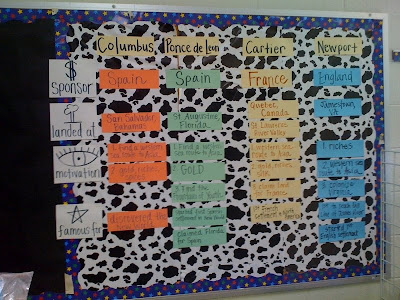
Welcome to Ancient Mali!
SOL Objectives:
3.2 - The student will study the early West African empire of Mali by describing its oral tradition (storytelling), government (kings), and economic development (trade).
3.4- The student will develop map skills by
a) West Africa
b) describing the physical and human characteristics of West Africa;
c) explaining how the people of West Africa adapted to and/or changed their environment to meet their needs.
3.7 The student will explain how producers in the ancient West African empire of Mali used natural resources, human resources, and capital resources in the production of goods and services.
Can you answer these questions?1. Why was the empire of Mali so wealthy?
2. What do we know about the empire of Mali?
3. Why were storytellers so important in the empire of Mali?
4. Where was the empire of Mali located on maps?
5. What were the physical and human characteristics of West Africa?
6. How did the people of Mali adapt to and change their environment to meet their needs?
7. Did economic specialization and interdependence exist in the empire of Mali?
Essential Knowledge
- Africa was home to several great empires. One of the most prosperous was the empire of Mali. Mali is located in the western region of Africa.
- Many storytellers in Mali passed on traditions and stories from one generation to the next.
- The kings of Mali were rich and powerful men who controlled trade in West Africa. Mali became one of the largest and wealthiest empires in the region and was an important trade center.
- Mali lay across the trade routes between the sources of salt in the Sahara Desert and the gold region/mines of West Africa. For the people of the desert, salt was a natural resource. People used salt for their health and for preserving foods. Miners found gold in West Africa. Therefore, salt was traded for gold.
- Timbuktu was an important city in Mali. It had a famous university with a large library containing Greek and Roman books.
- The physical charateristics of Mali include: it is located in West Africa, it is near rivers (Niger River), with desert like conditions, and features gold mines.
- Three important human resources in Mali were farmers, miners, and traders.
- Salt was an important natural resource for the people in the desert. It was traded for gold.
Fun Review Websites:
http://www.quia.com/quiz/269843.html
http://www.quia.com/rr/36347.html
http://www.quia.com/ba/72747.html
http://www.quia.com/rr/118615.html
http://www.quia.com/sh/79459.html
http://www.quia.com/rr/152747.html
What else can you do to study:
- Flashcards (will go home February 8)
- Study class notes
- Read Social Studies textbook pages 12-15.
 Veterans Day was celebrated on November 11. This year, we decided to honor our veterans by telling their stories. We wanted to know what it was like to have served our country. We were curious about training, daily schedules, and friends. We wondered about war. Read the following posts to hear more about our interviews with our Veteran friends.
Veterans Day was celebrated on November 11. This year, we decided to honor our veterans by telling their stories. We wanted to know what it was like to have served our country. We were curious about training, daily schedules, and friends. We wondered about war. Read the following posts to hear more about our interviews with our Veteran friends.






